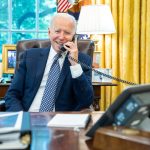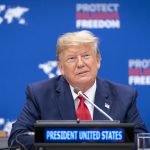A federal judge recently threw a curveball at the Justice Department’s stringent tactics during a case related to January 6. William Pope, a Kansas man who participated in the Capitol events without resorting to violence, has been granted special permission to attend President-elect Donald Trump’s upcoming inauguration. This ruling hands a significant, albeit rare, victory to a defendant who has been under tight restrictions since March 2021, essentially earning a temporary respite from a politically motivated no-go zone in Washington, D.C.
The decision came from Judge Rudolph Contreras, who sharply diverged from standard protocols that typically penalize individuals linked to January 6 with travel bans. This departure underscores an evolving perspective within the judicial system, where individual contexts are increasingly considered over one-size-fits-all mandates. The ruling stands in stark contrast to the Justice Department’s hardline stance, which frequently seeks to quarrel over travel requests made by other defendants—failing to acknowledge that many of these individuals were nonviolent participants in what some view as a protest more than an insurrection.
Pope’s fireworks display of a legal victory comes amid a backdrop of dissenting voices within the judicial arena. Unlike other defendants who have faced rejection after rejection from a Department of Justice seemingly hell-bent on vilifying January 6 participants, Pope’s case and those of a select few like Eric Peterson showcase a willingness to analyze cases on an individual basis. Peterson, also a nonviolent offender, received similar permission, sending the message that not all accused are cut from the same cloth.
In sharp contrast, other defendants have not been so lucky. Take Cindy Young, for example, who was denied permission to travel despite her less-than-menacing history. The prosecutors argued she posed a threat, a narrative promoted more by fear-mongering than facts. Likewise, Christopher Belliveau faced a stern rejection, even with his lawyer highlighting his respectable status as a business owner. The judge ruled against him due to the serious nature of the accusations, illustrating the inconsistency with which justice is being administered.
EXCLUSIVE: January 6 Defendant William Pope Granted Exception to Attend Trump Inaugurationhttps://t.co/tw2fGUngbY
— BrutalBrittany💕 (@BrutalBrittany2) January 7, 2025
As the date draws near for Trump’s second term inauguration, Pope’s successful motion signals a subtle yet significant shift in how January 6 cases are being navigated. This newfound willingness to consider the character and circumstances of defendants could reshape the way similar cases are approached moving forward. Attending the inauguration isn’t just a personal milestone for Pope; it’s a symbolic representation of individual liberty and a nod to the principle that not every action deserves to be met with a stern hand of the law.
With a firm resolve and a demonstration of support for a democratic process that many believe has been undermined, William Pope looks forward to making the most of his limited time in Washington. This pivotal moment not only highlights a personal win for him but serves as a clarion call for fairness in a legal landscape overshadowed by political bias. His attendance at the inauguration could be interpreted as a profound assertion of collective resilience against the narrative that vilifies so many who engaged in what they believed to be patriotic action on January 6.




